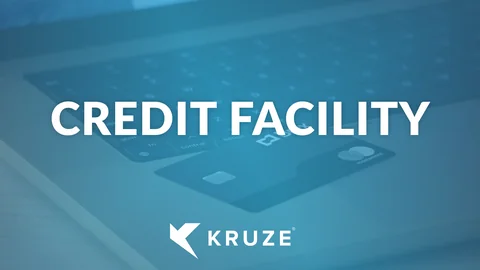
Credit facilities are essential financial tools for startups, providing flexible access to funds when needed. Whether you’re bridging gaps between funding rounds, managing cash flow, or scaling operations, credit facilities can help startups grow without diluting founder equity. However, setting up and using them effectively requires careful planning and strategic execution.
What Is a Credit Facility?
A credit facility is a loan agreement that allows businesses to draw funds up to a predetermined limit as needed. Unlike traditional loans, which offer a lump sum upfront, credit facilities provide flexibility – you borrow only what you need and pay interest on the amount actually used. Common types of credit facilities include:
- Revolving credit lines. Funds can be borrowed and repaid repeatedly within the credit limit.
- Secured credit facilities. Backed by collateral such as inventory or intellectual property.
- Unsecured credit facilities. Based on creditworthiness, without requiring collateral.
Setting Up a Credit Facility for Your Startup
If you’re establishing a credit facility, you will need to show your startup’s financial strength and outline a repayment plan. Some actions you should take include:
-
Build your startup’s credit profile. Startups with strong business credit are more likely to secure favorable terms. You can establish business credit by:
- Incorporating your business to separate personal and business finances. Make sure you establish a business address and phone number.
- Obtain an Employer Identification Number (EIN). You’ll need this for tax filings, opening business bank accounts, and applying for credit.
- Opening a dedicated business bank account for financial transactions.
- Apply for business credit cards.
- Pay any bills and credit lines on time.
-
Assess your startup’s credit needs. Before applying for a credit facility, determine the amount of funding your startup requires and the reasons for it. Common reasons include:
- Covering payroll gaps during delayed revenue cycles.
- Financing inventory purchases or capital equipment.
- Bridging funding rounds without diluting founder equity.
-
Prepare your financial documents. Lenders evaluate your startup’s financial health before approving credit facilities. You’ll need:
- A detailed business plan outlining growth strategies, cash flow projections, and a path to repayment.
- Profit and loss statement to show revenue and expenses (ideally the last 12-18 months).
- Your balance sheet reflecting the business assets, liabilities, and equity.
-
Choose the right lender. Explore options such as banks, non-bank lenders, or venture debt providers based on your needs:
- Banks offer lower interest rates but generally have stricter eligibility criteria. They’re ideal for established startups with predictable cash flow.
- Non-bank lenders can provide flexibility, but often charge higher interest rates. They’re better suited for early-stage startups needing quick access to funds.
- Venture debt is often available to high-growth startups that lack significant revenue or collateral but have successfully raised venture capital funding. Venture debt lenders focus more on a company’s growth potential and recent VC funding rounds.
-
Negotiate terms. When negotiating your credit facility agreement, focus on:
- Interest rates and fees. Make sure they align with your budget and projected cash flow.
- Repayment schedule. The payment frequency (monthly or quarterly) and amounts must align with your business plan.
- Collateral requirements. If you’re using collateral to back your loan, understand what assets are at risk in case of default.
How Startups Can Use Credit Facilities Strategically
Startups can leverage credit facilities as a strategic tool to improve their financial agility and support key business objectives. Credit facilities can help startups:
- Manage cash flow. Credit facilities allow startups to smooth out cash flow fluctuations by providing funds during revenue gaps or unexpected expenses. For example, founders can use revolving credit lines to cover payroll during slow months or finance bulk inventory purchases at discounted rates.
- Bridge funding rounds. Startups often face a gap between seed funding and Series A rounds, which typically spans 12-18 months. A credit facility can provide accessible capital during this period without requiring equity dilution. For instance, a software startup could utilize a line of credit to fund product development while waiting for Series A funding.
- Scale operations. As startups grow, they can use more extensive credit facilities to finance expansion activities such as hiring new staff, funding fintech lending business models, financing working capital purchases (e.g. equipment purchases), or launching marketing campaigns. For example, fintech companies often use credit facilities to fund customer loans while scaling their platforms.
- Build business credit. Responsible usage of a credit facility – borrowing only what’s needed and repaying on time – helps build business credit scores over time. That can help your startup qualify for larger loans or better terms in the future.
Common Credit Pitfalls to Avoid
While credit facilities can provide your startup with financial flexibility, misuse can lead to financial strain or even penalties. Some common mistakes include:
- Overborrowing: Borrowing more than your startup needs can lead to unnecessary interest payments and repayment challenges. Always match your loans to your specific growth objectives or operational needs.
- Missing payments: Late repayments damage your business credit score and may incur penalties. If possible, automate your payments to avoid missing any.
- Misusing funds: Using borrowed capital for non-essential expenses (for example, luxury office space) rather than revenue-generating activities is almost always a bad idea.
- Neglecting collateral risks: If you’re using collateral (like intellectual property) to secure a loan, remember that you’re risking your assets in case of default.
Credit facilities are powerful tools for startup founders
A credit facility can provide your startup with financial flexibility without diluting your equity ownership, but you should plan your borrowing carefully and use the funds strategically. Credit facilities can be used to smooth cash flow, bridge funding rounds, and scale operations, positioning your startup for success by giving you a strong financial foundation.















